
Ian Payne 4am - 7am
26 June 2023, 17:47
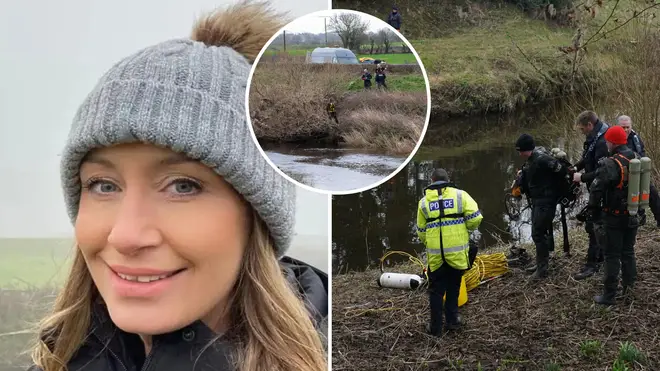
A witness has told the inquest into the death of Nicola Bulley that the mother-of-two spotted near a "man dressed in black" on the morning of her disappearance, reporting the sighting to police.
Submitting a witness statement to Lancashire Constabulary following her disappearance, Mr Fife described how he passed Ms Bulley - who was on her phone - while on his dog walk between 9.10am and 9.20am on the morning of her disappearance.
According to his statement, Mr Fife saw the 6' 1"man, dressed “all in black and possibly a beanie hat" again on his return, adding that he thought it was strange.
Mr Fife then got in his car and drove off. When he drove past the spot where the man in black had been standing, he said the figure had gone.
Ms Bulley's body was found in the River Wyre on February 19 - around a mile from where the mother-of-two vanished.
Listen and subscribe to Unprecedented: Inside Downing Street on Global Player
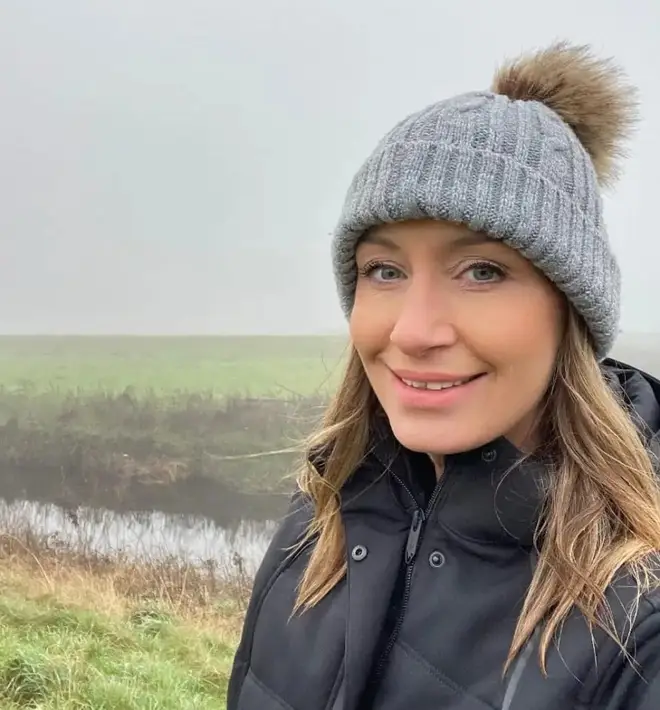
A widespread search of the river was conducted following her disappearance while out walking her dog in St Michael's on the Wyre, Lancashire, on January 27.
Noting he knew her well enough in passing to say hello, eye-witness Mr Fife explained he saw a “man in black” as he walked towards Ms Bulley and assumed “he was waiting for a lift”.
The evidence came as part of an inquest into Ms Bulley's death, with experts noting just two breaths of water would have been enough to kill her.
Professor Michael Tipton, an expert giving evidence as part of the inquest into Ms Bulley's death, noted the water temperature would have been around "three to five degrees (in the River Wyre), so there would be a particularly powerful cold-shock response."
"For somebody of Nicola’s size, it would have taken one or two breaths in of water to be a lethal dose."
He added that Ms Bulley would have died "less than 10 seconds" after hitting the water.
Read more: Nicola Bulley's cause of death revealed as inquest hears she was alive when she entered river
Read more: Police cleared by information watchdog for releasing Nicola Bulley's medical history
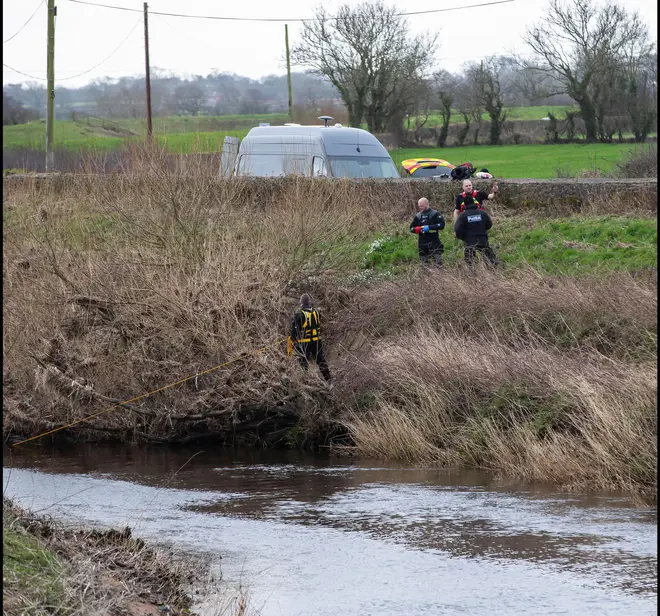
The comments come as part of an inquest into the mother-of-two's death, with Police diver PC Thackeray, from the police's North West underwater diving team, giving evidence alongside drowning experts Professor Mike Tipton and Dr Paddy Morgan.
Ms Bulley's cause of death was confirmed as drowning, with Coroner Dr Adeley confirming that Ms Bulley had not been drinking before her death.
It was noted there were no sign of any third party involvement in her death.
The inquest also heart evidence from two witnesses who who reportedly heard a scream near the riverside on the morning she vanished.
Nurse Helen O'Neill was in the garden on Allotment Lane - close to the path that leads to the bench where Ms Bulley's phone and dog were found.
She told the inquest: "I heard a scream, it's not an alarming noise, it was just over in a couple of seconds. I'm quite used to hearing the children in the school out back, but it was not that noise.
"I vividly remember thinking it's unusual at this time. In my head, I had two females, walking along by the river and one jumped out on the other. I didn't think anything of it until later on."
Second witness, Veronica Claesen, club secretary for the village tennis club, told the inquest: "I was just about to get into the car and I heard a scream.
"A very short scream and my immediate thought was, 'Somebody is having a bit of fun at the back of the graveyard'."
Ms Claesen added that it was an "inhale scream" like a sharp intake of breath.
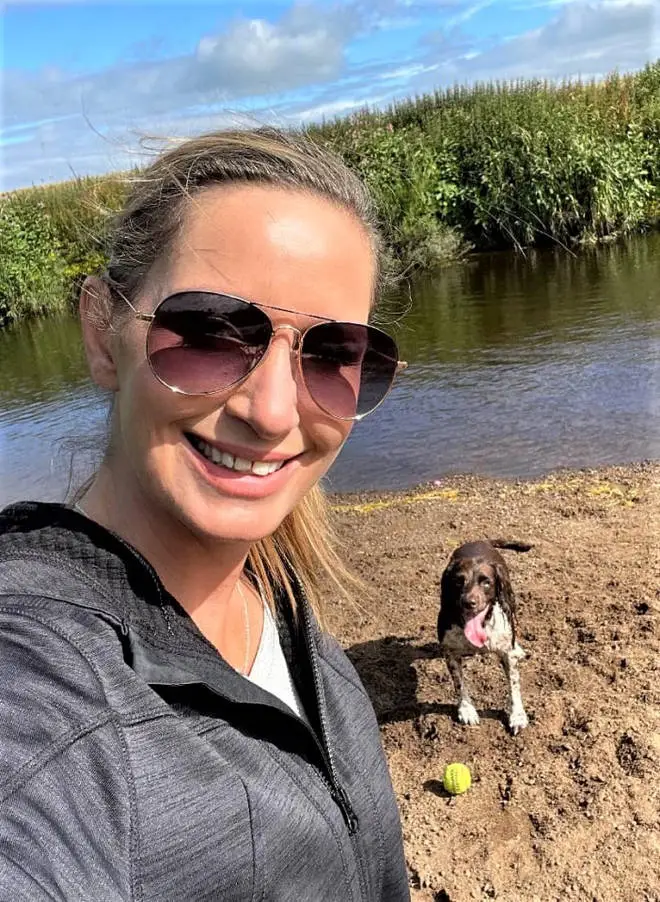
The inquest, taking place at County Hall in Preston, Lancashire, also heard from Home Office pathologist Dr James Adeley.
As part of the inquest, PC Thackery said it would have taken anyone falling into the river "two to three minutes" before arriving at the first point where a person is able to climb out.
The coroner added: "That’s an awfully long time in very cold water."
The coroner then asked: "If you were in the water and trying to climb out, would it be possible to find a foothold on [the bricks]?"
PC Thackery replied: "No not at all… it's very difficult to get out of the water here."
"If you have fallen and gone over the edge of the steep section are you going to stop before you hit the water?" questioned the coroner.
PC Thackery replied: "No. You would just go into the water."
It comes as PC Thackery estimated that Ms Bulley travelled down the fast flowing river at around a "metre a second".
"If you're not used to it then entering water at that temperature would lead to cold water shock," noted PC Matthew Thackeray, adding the water temperature was around four degrees when Miss Bulley entered the water.
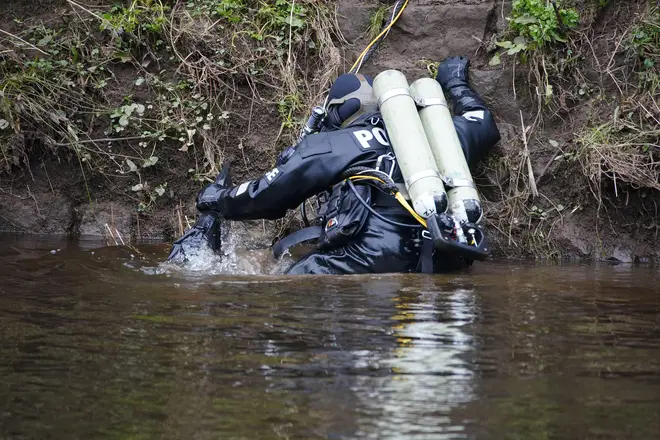
Home Office pathologist Dr Alison Armour, who carried out the post mortem, gave her cause of death as drowning.
Professor Tipton also added that he temperature the River Wyre was on the day Ms Bulley went missing, a person would have lost consciousness within around 25 seconds, adding: "It is very rapid incapacitation."
At the time of her disappearance, Ms Bulley's family called in private underwater search specialists amid a conspiratorial social media frenzy.
Around 100 locals meet in the village hall to organise a search party. Police urge caution, describing the river and its banks as "extremely dangerous".
It follows Home Office pathologist Dr Alison Armour, who carried out the post mortem, noting that Ms Bulley's cause of death was listed as drowning.
The expert said she believed Nicola was alive when she entered the water and confirmed there was no sign she had been assaulted before her death and no indication of third party involvement.
Dr Armour said the internal examination found “classic signs” of asphyxia, which happens when the body is deprived of oxygen, but there was no sign of trauma to Nicola's neck.
As part of the ongoing inquest, PC Thackery added: "I have attended a number of deaths where the water is chest deep and with a flat bottom with no flow to the water.
Read more: Nicola Bulley's cause of death revealed as inquest hears she was alive when she entered river
"You could avoid drowning by keeping calm and standing up, however, it doesn't happen like that when you suddenly enter cold water.
"You gasp and you breathe in water and these drownings could have been prevented if they had kept calm and kept your head above the water, but it’s never that simple.
"In this case you can’t put your foot down, the river was moving and even if you got to the point of safety it’s difficult to climb out."
An independent review of Lancashire Police’s handling of the case is currently under way by the College of Policing, ordered by Lancashire’s Police and Crime Commissioner Andrew Snowden following the discovery of Ms Bulley's body.
The inquest is expected to last two days.